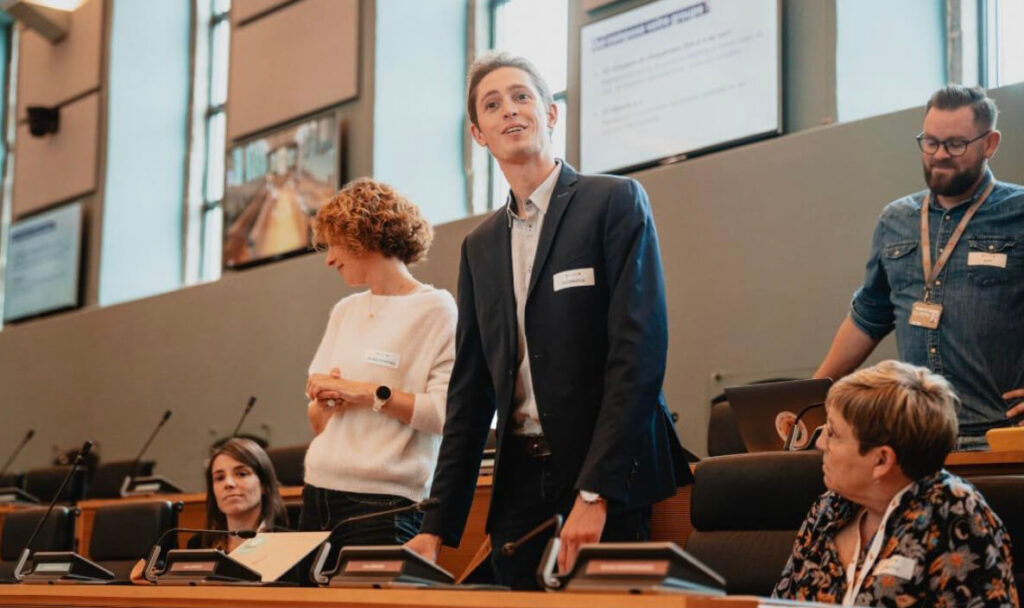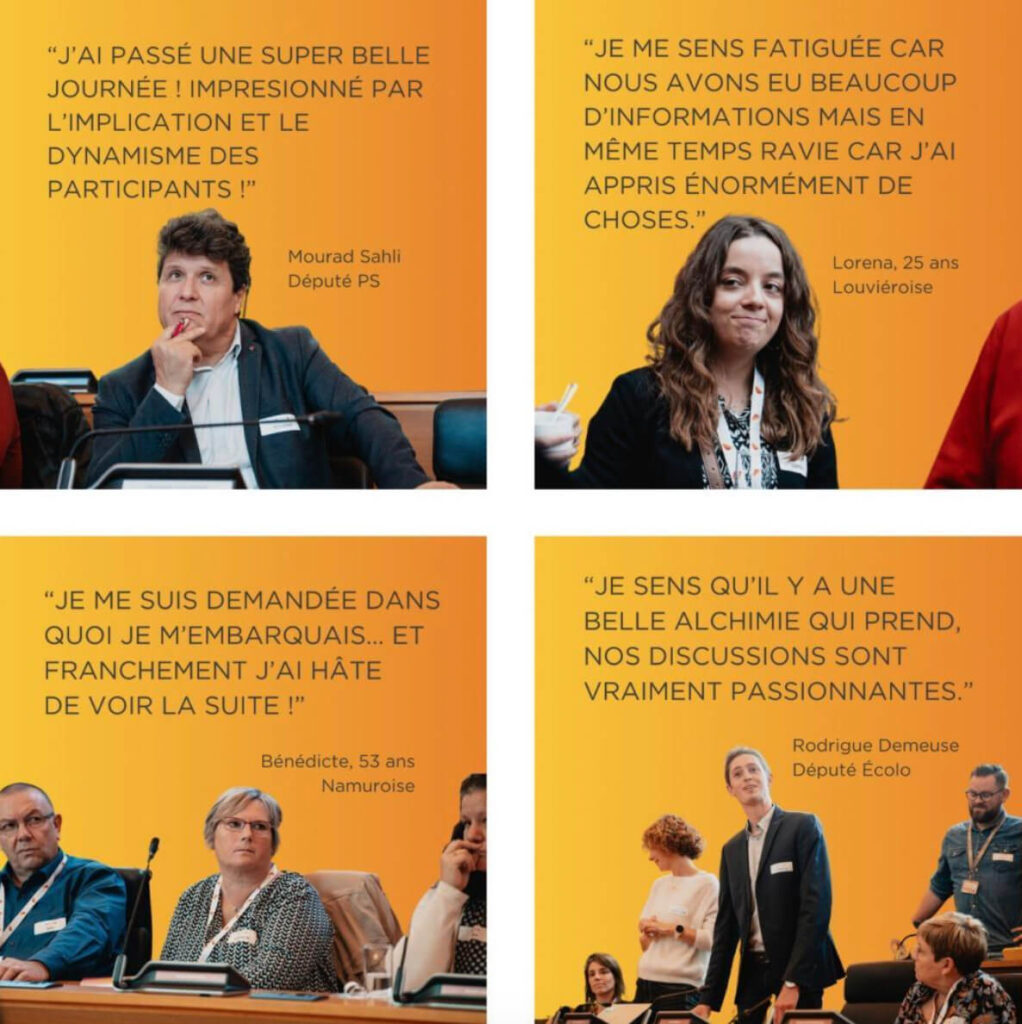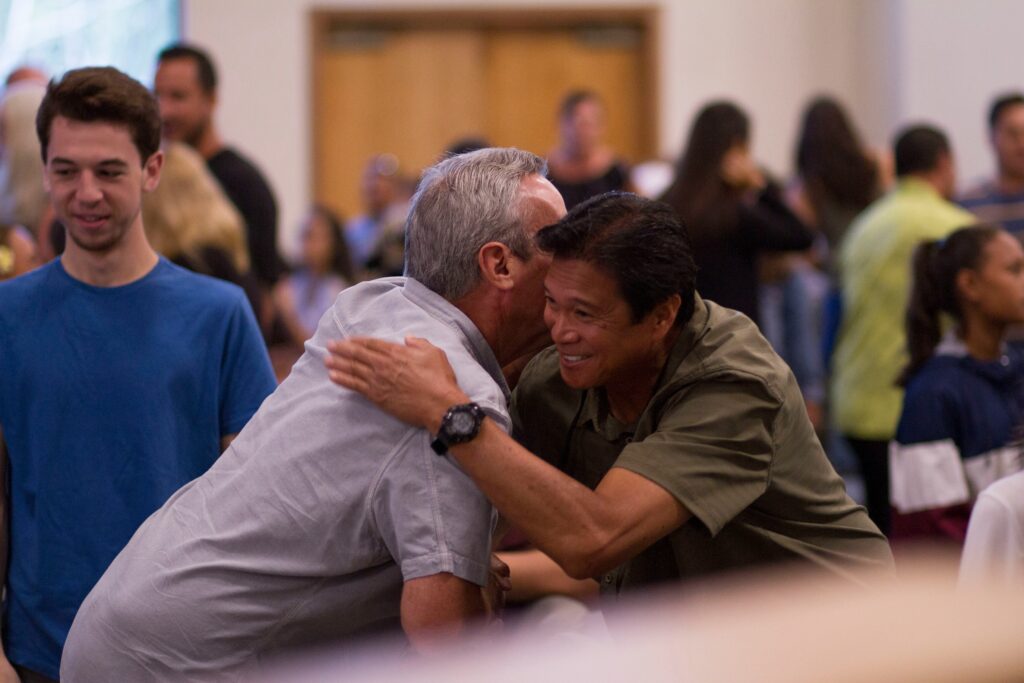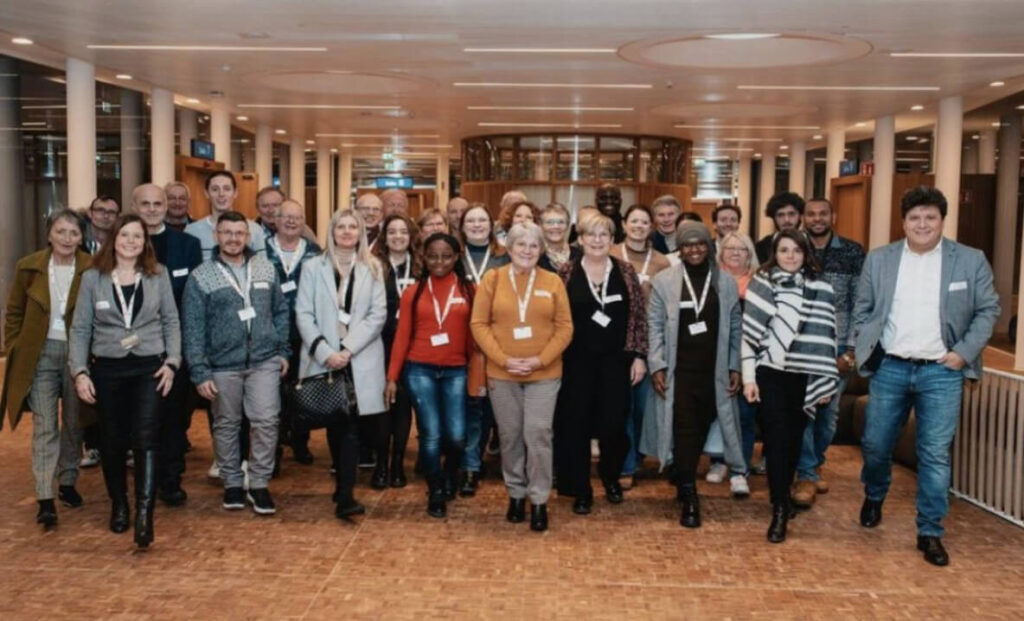L’expérience bruxelloise des Commissions délibératives a pu susciter certaines critiques quant à l’équilibre des échanges entre élus et citoyens. Dans un article du Deliberative democracy digest les universitaires Sophia Simon et Julien Vrydagh, se demandent par exemple si la facilité des élus pour la parole publique ne leur donnerait pas un poids disproportionné dans la formulation des recommandations. Quels enseignements tirer de la première Commission délibérative wallonne, facilitée par Dreamocracy, achevée en février 2024 ?

- Délibération hybride
Première Commission délibérative wallonne : bilan des échanges entre élus et citoyens
De l’enthousiasme dès le début du processus
Dès la première séance le 12 novembre 2023, citoyens et élus ont manifesté un réel enthousiasme et engagement dans le processus :

Survey confirms initial enthusiasm
If opinions seem positive at the start of the process, what is the situation after 5 sessions of deliberation? Academics Christoph Niessen and Min Reuchamps carried out a survey of participants based on a questionnaire submitted before and after the deliberations.
At the end of the 5 sessions, around 80% of the participating citizens and elected representatives had a positive opinion of the process in which they had taken part. The remaining 20% were not negative, with 10% saying « neither positive nor negative » and 10% not responding.
This survey also shows that a majority of participants have a positive opinion specifically on the deliberation between elected representatives and citizens. « Good work between MPs and non-elected citizens », said one citizen.
For MP Hélène Ryckmans, this Deliberative committee has enabled « politicians to open up to the richness of direct exchange with citizens ». As her colleague Charles Gardier points out: « I have to be honest, I came to this committee with a certain number of assumptions, come on, maybe even some preconceived ideas. They have been largely shattered. I really think that this exercise over several Sundays was very enriching, and brought […] a real awareness, a real change in my perception ».
How can dialogue between elected representatives and citizens be balanced? Lessons from Wallonia’s Deliberative committee
Enabling a quality, balanced conversation between elected and ‘ordinary’ citizens does not happen without taking certain steps. We recommend in particular attending to the following factors of success.
.Preparation time without elected representatives. Sometimes, applying the same procedure for elected representatives and citizens simply risks giving the advantage to the elected representatives, who are potentially better informed and more at ease on the subject. It may be a good idea to set aside some preparation time for citizens only, so that they can then enter into the deliberations with the elected representatives, who are better equipped and therefore on a more equal footing.
.Experienced facilitators: more than other participation initiatives, the Deliberative committees require experienced facilitation in order to balance the voices of the most talkative and the most shy. Indeed, balancing the contributions of elected representatives who are experts in public discourse requires active and sufficiently assertive facilitation to maintain the framework.
.Personalised support between sessions: a member of the Dreamocracy team was specifically responsible for calling participants between each session and spending the necessary time with them to prepare them and answer their questions. This was a real time of support that enabled the citizens to arrive more confident and at ease in the deliberations with the elected representatives.
.Feedback and preparation time with elected representatives: the exercise of deliberating directly with citizens was new for elected representatives. Video meetings were set up between sessions with MPs. This enabled them to receive feedback and clear up certain points in advance of the meetings, thereby enhancing the quality of exchanges between elected representatives and the public.
Other related articles
Tout savoir sur la première Commission délibérative au Parlement de Wallonie, une innovation démocratique prometteuse Commission délibérative : le parlement wallon innove face à la crise démocratique
Vous souhaitez en savoir plus?
Prenez rendez-vous pour commencer à libérer votre créativité avec le responsable du projet, Victor.
Envoyer un emailPublications associées
-

- Emotions en politique
(R)éagir face à l’émotion : mettre les émotions au service de la participation citoyenne
-

- Créativité politique
Ça y est, Trump est Président. Va-t-on enfin voir la défense de la démocratie comme un impératif ?
-

- Délibération hybride
“Les initiatives de participation doivent laisser les citoyens délibérer entre eux, sans élus !” D’accord ? Pas d’accord ?